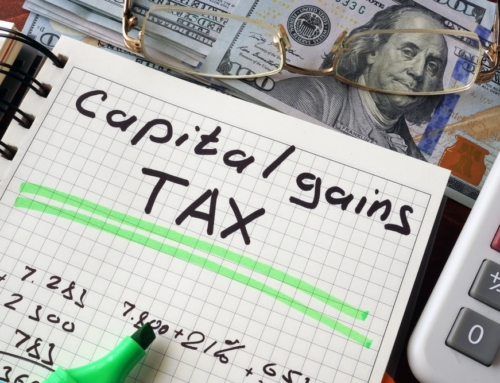For many teenagers, the after-school job is a rite of passage—a ticket to independence and disposable income. But once they have a job, do teenagers need to file their own tax returns?
Whether you are the parent of a teenager or a teen yourself, here are four things you should know about taxes for teenagers.
1. Teenagers with a job do not necessarily have to file an independent tax return.
The IRS collects taxes on all income, regardless of the earner’s age or whether the job is full or part time. However, you don’t have to file a tax return unless you meet the standard deduction for a single filer, which was $6,300 in 2015. Teens earning less than that in a year are not required to file a return.
Despite this, filing an independent return may have benefits. “If the teen is not making more than the standard deduction, it would still be beneficial to file the return, as [he or she] would get a refund of any income taxes withheld,” says Brian Larisey of Larisey & Company, a Chicago tax and accounting firm.
However, families should also weigh their options and consider potential valuable tax credits.
“Generally, if a teen is not making more than $3,950, the qualified individual who is able to claim the teen will usually receive a greater tax benefit,” says Daniel Daoud, CPA, vice president of Chicago Accounting Consultants, an accounting and tax preparation service. “Families may want to consider the benefit from a more favorable filing status, such as head of household, and additional refundable and nonrefundable credits that may be lost if the teen files independently.”
2. The tax form you fill out when you are hired tells all.
“The most important thing a teenager should understand is the W-4, which is filled out when starting a job,” says Larisey. “The number of exemptions claimed will affect the amount of withholding. If one claims a large number of exemptions, then [one] could owe money at tax time.”
Paying attention to which exemptions you’re claiming is vital. Teenagers who don’t expect to earn more than the standard deduction at an after-school job can claim exemption from federal tax withholdings.
Some teenagers may fill out a 1099-MISC, designating them as a contractor instead of an employee. Contractors must pay self-employment tax, which is required once earnings exceed $400. That means a teenager can be offering a service like music or dance lessons, earn too little to file an independent tax return, and still owe self-employment tax at 15.3 percent. Jobs such as babysitting and lawn mowing, though, are classified as “household jobs” and are not subject to either federal income tax or self-employment tax, even if the amount earned exceeds the threshold for the latter tax.
3. Filing an independent tax return does not affect federal student aid for full-time students.
“Any teen who does not fulfill the criteria for independent student status is considered to be dependent. This is the case even if the student supports more than half of [his or her] personal expenses, does not live with his or her parents, and files a separate tax return,” Daoud explains. “A student who is considered dependent in regards to Free Application for Federal Student Aid (FAFSA) is generally under the age of 24 as of Dec. 31, of the award year, unless he or she is married, has a dependent, is an orphan, is a veteran, or is an active duty member of the U.S. armed forces.”
Using the information on the FAFSA application, the federal government subtracts the expected family contribution, determined by the family’s overall taxable income, from the cost of attendance for the chosen school to determine how much need-based financial aid the student will receive. Because teens often work part-time or seasonal jobs, their independent income typically does not influence the amount of need-based aid for which they might qualify.
As a measure of self-protection, FAFSA will not override dependency just because parents refuse to contribute to their child’s education or refuse to complete FAFSA verification, Daoud says.
4. A CPA can be a teenager’s best ally for the first tax season—and beyond.
Taxes can be confusing, even for adults who have been filing them for years, and they can be overwhelming for a teenager filing for the first time. This is why many experts recommend working with a tax professional or certified public accountant (CPA).
“Good CPAs are worth their weight in gold,” Daoud says. “They usually will not only be able to ask you the necessary questions to get the maximum refund [but] they likely will also be able to keep you from possible trouble with the IRS.”
Tax codes change from year to year, and a professional can help navigate that complex and ever-shifting landscape, Daoud adds. He advises everyone, not just teenagers, to find a professional they trust and be honest with while working with that person.
“Your relationship with your tax professional is one of the most revealing relationships you will ever have,” he says. “[He or she] should know everything about you financially and most of the personal issues that affect your return. If you don’t feel comfortable releasing this information to your current tax professional, find one that you can trust.”






